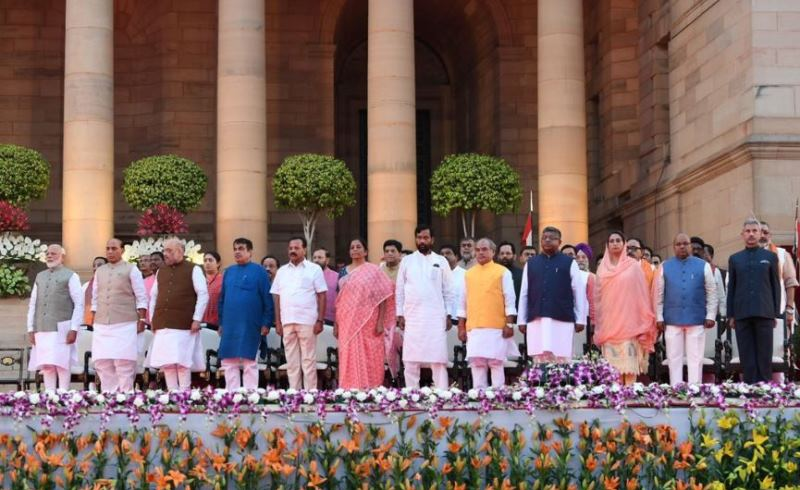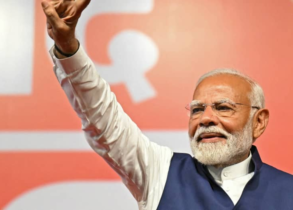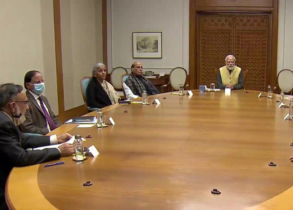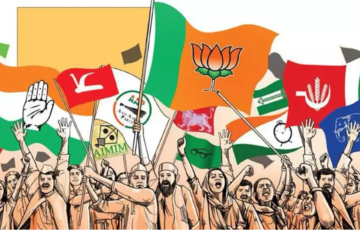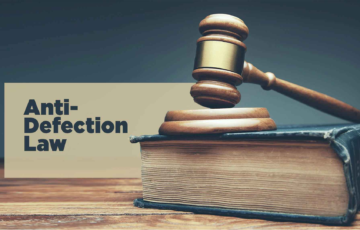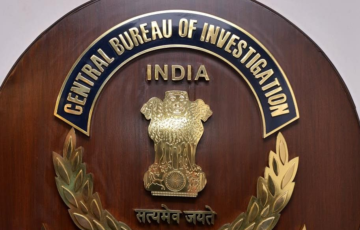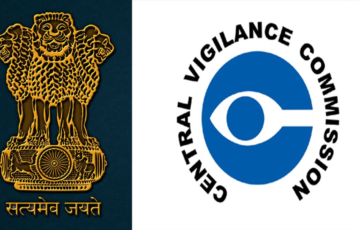COUNCIL OF MINISTERS
Background
- The Indian Constitution indeed adopted the British parliamentary form of government, where the real executive power is vested in the Council of Ministers, with the Prime Minister as its head. While the President of India holds a constitutional position, executive authority is exercised by the Council of Ministers. This system closely resembles the British parliamentary model.
- The concept of a parliamentary system in India can be traced back to several historical developments, including the Indian Councils Act of 1861 (also known as the Indian Councils Act, 1861 or the Morley-Minto Reforms). However, the specific adoption of the parliamentary form of government, as outlined in the Indian Constitution, was a result of the drafting and deliberations of the Constituent Assembly, which was in session from 1947 to 1949. Lord Canning, who was the Governor-General of India during the mid-19th century, is not directly associated with the framing of the Indian Constitution.
Constitutional Provisions
- Article 74 – Council of Ministers to aid and advise the President:
- Clause (1): This clause establishes that there shall be a Council of Ministers with the Prime Minister at the head, and their role is to aid and advise the President. The President is required to act in accordance with the advice of the Council of Ministers. However, the President has the discretion to require the Council of Ministers to reconsider their advice. After reconsideration, the President must act in accordance with the advice tendered.
- Clause (2): This clause states that the question of whether any advice was tendered by the Ministers to the President should not be inquired into in any court. It emphasizes the confidential nature of the advice provided by the Council of Ministers to the President.
- Article 75(1) – Appointment of the Prime Minister and other Ministers:
- This article specifies that the President shall appoint the Prime Minister. The other Ministers are appointed by the President, but this appointment is done on the advice of the Prime Minister.
| Other Provisions |
|
Qualifications of Council of Minister
- Minister must be a member of either House of Parliament: This is a key qualification for a person to become a Minister in India. A Minister must be a member of either the Lok Sabha (House of the People) or the Rajya Sabha (Council of States), which are the two houses of the Indian Parliament.
- If a person who is not a member of either House of Parliament is appointed as a Minister, he shall cease to be a Minister after six months unless, in the meanwhile, the Minister gets elected to either House of Parliament within six months: This statement underscores the requirement that a Minister who is not already a member of either house of Parliament must get elected within six months to retain their position as a Minister.
Disqualification of Council of Ministers due to defection
- If a member of Parliament has been disqualified on the grounds of defection, they would not be eligible to become a Minister. However, if they get re-elected in the next parliamentary election, they can become eligible to be a Minister: This highlights that individuals who have been disqualified from being members of Parliament due to defection cannot be appointed as Ministers. However, if they are re-elected in a subsequent parliamentary election, they can become eligible for ministerial positions.
Participation of Council of Ministers in parliamentary proceedings
- The Ministers may be chosen from members of either House: This means that Ministers can be chosen from among members of either the Lok Sabha or the Rajya Sabha, providing flexibility in selecting individuals for ministerial positions.
- A Minister who is a member of one House has the right to speak in and to take part in the proceedings of the other House, though they have no right to vote in the house of which they are not a member: That is a Minister who is a member of one house to participate in the proceedings of the other house (either Lok Sabha or Rajya Sabha) by speaking and engaging in debates. However, they do not have the right to vote in the house of which they are not a member.
Size of the Council of Ministers: While the Constitution does not specify the size of the Council of Ministers, the 91st Constitutional Amendment Act, 2003, imposes a limit. According to this amendment, the total number of ministers in the Council of Ministers at the central level should not exceed 15% of the total strength of the Lok Sabha, which is the lower house of the Indian Parliament.
Term of Office
- Ministers in India are appointed by the President on the advice of the Prime Minister and serve at the pleasure of the President. However, their continued tenure is contingent upon maintaining the support of the majority in the Lok Sabha.
- The Prime Minister can ask any minister to resign at any time, and the minister is expected to comply.
- If the Prime Minister resigns, the entire Council of Ministers also resigns.
- The duration for which a minister can hold office is not fixed, and it depends on their ability to retain the support of the majority in the Lok Sabha.
- The maximum duration for which a minister can serve is five years or the duration of one complete term of the Lok Sabha.
- Even if the same political party or coalition that held a majority in the previous Lok Sabha is re-elected in the next general election, a new Council of Ministers is typically formed after each election.
Categories of Ministers
|
Cabinet Ministers |
Cabinet Ministers are experienced and senior members of the Council of Ministers. They typically hold significant and crucial portfolios, such as Home, Finance, Defense, Agriculture, Foreign Affairs, etc. The number of Cabinet Ministers can vary over time, but it is generally in the range of 15 to 20. A Cabinet Minister usually heads a Ministry and is given independent charge of that ministry, unless they are appointed as a Minister without portfolio. Cabinet Ministers have the right to attend Cabinet meetings and participate in key decision-making. |
|
Minister of State |
A Minister of State may be given independent charge of a Ministry, just like a Cabinet Minister. However, a Minister of State does not have the automatic right to attend Cabinet meetings but can do so if invited. They assist in the administration of specific ministries and departments. |
|
Deputy Ministers |
Deputy Ministers are junior members of the Council of Ministers. They are not given independent charge of any department or ministry. A Deputy Minister works under the guidance and supervision of either a Cabinet Minister or a Minister of State to gain proper training and experience. Deputy Ministers do not have the right to attend Cabinet meetings and are typically involved in supporting the work of their respective ministries. Deputy Ministers are junior members of the Council of Ministers. They are not given independent charge of any department or ministry. A Deputy Minister works under the guidance and supervision of either a Cabinet Minister or a Minister of State to gain proper training and experience. Deputy Ministers do not have the right to attend Cabinet meetings and are typically involved in supporting the work of their respective ministries. |
Power of Council of Ministers
Executive Power
- Executive Functions: The Council of Ministers, headed by the Prime Minister, exercises all of the executive functions of the President of India. This includes the day-to-day administration of the government, the implementation of laws and policies, and the management of various government departments.
- Policy Development: The Cabinet, which is a subset of the Council of Ministers, is responsible for developing policies that are to be presented to Parliament for approval. These policies cover a wide range of issues, including economic, social, and foreign policy.
- Parliamentary Approval: After policies are developed by the Cabinet, they are presented to Parliament for approval. This approval can take the form of bills and resolutions, and they must be passed by both houses of Parliament to become law.
- Implementation: Once policies and laws are approved by Parliament, it is the responsibility of the Council of Ministers to implement them. This includes the execution of government programs and initiatives, as well as the day-to-day governance of the country.
- Administration: The Council of Ministers manages the administration of the Union government in line with authorized policies. This involves coordinating and controlling all government departments to ensure that policies and programs are effectively executed.
- Foreign Policy: The Cabinet, under the guidance of the Prime Minister, is also responsible for formulating India’s foreign policy. This includes decisions related to diplomacy, international relations, and interactions with other countries.
Emergency Powers
- National Emergency (Article 352): The President can declare a National Emergency on the advice of the Council of Ministers, headed by the Prime Minister. This emergency can be declared on the grounds of a threat to the security of India, either due to war, external aggression, or armed rebellion. Once declared, the President can take various measures as specified in the Constitution, which can include the suspension of certain fundamental rights and the extension of the term of the Lok Sabha.
- State Emergency (Article 356): The President can declare a State Emergency in a particular state of India if the state government is not functioning in accordance with the provisions of the Constitution. This declaration is also made on the advice of the Council of Ministers. It essentially means the dismissal of the state government, and the President can take over the administration of the state.
- Financial Emergency (Article 360): A Financial Emergency can be declared if the financial stability or credit of India or any part of its territory is threatened. Like other emergencies, this declaration is made on the advice of the Council of Ministers.
Legislative Power
- Introduction of Bills: Ministers who are members of Parliament often play a crucial role in the introduction and piloting of bills in the legislature. These bills can cover a wide range of issues, from budgetary matters to policy changes, and they are essential for the functioning and development of the country.
- Government Business: A substantial portion of the legislative agenda in Parliament is comprised of government business, which includes bills, resolutions, and other matters proposed by the government. Ministers actively participate in the deliberations, discussions, and debates on these matters.
- Majority Support: The Council of Ministers is drawn from the majority party or coalition in the Lok Sabha (the lower house of Parliament). Because of this majority support, bills and other legislative proposals put forward by the government are typically expected to pass in the Lok Sabha.
- Vote of No Confidence: If the Lok Sabha passes a bill that the Council of Ministers does not support or rejects a bill that the Council of Ministers supports, it is considered a vote of no confidence in the government. Similarly, if the Cabinet’s budget is rejected by the Lok Sabha, it can also lead to a vote of no confidence.
- Resignation and Dissolution: In the event of a vote of no confidence, the entire Council of Ministers, including the Prime Minister, resigns from their positions. The Prime Minister may recommend to the President that the Lok Sabha be dissolved, leading to the need for a new general election. This process is a crucial aspect of the accountability of the government to the legislature.
Responsibility of Council of Ministers
| Collective Responsibility | Ministers in the Council of Ministers are collectively responsible to the Lok Sabha, the lower house of Parliament. This means that the entire Council of Ministers, including the Prime Minister, is collectively accountable to the Lok Sabha for the government’s policies, decisions, and actions. If the Lok Sabha passes a vote of no confidence in the government, it may lead to the resignation of the entire Council of Ministers. |
| Individual Responsibility | While ministers are collectively responsible to the Lok Sabha, they are individually responsible to the President of India. Article 75(2) of the Indian Constitution does grant the President the power to remove ministers, but in practice, this power is exercised on the advice of the Prime Minister. The Prime Minister, as the leader of the ruling party or coalition in the Lok Sabha, has the authority to ask a minister to resign or recommend their removal to the President. |
| No Legal Responsibility | The system of legal responsibility is not prescribed in the Indian Constitution.
In the UK the monarch cannot do any public act without the counter signature of a minister who is legally responsible for the act. If the act violates the law, the minister is responsible in a court of law. In India, an order of the President for a public act should not be countersigned by a minister. It is left to the President to make rules as to how his orders are to be authenticated. Further the courts are barred from inquiring into the nature of advice rendered by the ministers. |
Position of Council of Ministers
- Real Executive Power: The Council of Ministers, under the leadership of the Prime Minister, wields the real executive power in India. While the President of India has constitutional powers, these are largely exercised on the advice and recommendations of the Council of Ministers.
- Cabinet’s Role: Within the Council of Ministers, the Cabinet holds a prominent and influential position. It is responsible for the formulation of policies, the supervision of the government’s operations, and the overall direction of the country’s governance.
- Policy-Making: The Cabinet plays a pivotal role in shaping national policies. It deliberates and decides on crucial matters that affect the country’s economic, social, and foreign policies. The decisions of the Cabinet have far-reaching implications for the nation.
- Administration: In addition to policy-making, the Cabinet is also responsible for overseeing the administration of the government. It ensures that government departments and ministries function effectively in accordance with the policies and decisions made by the government.
- Coordination: The Cabinet serves as the supreme coordinator of government activities. It harmonizes the efforts of various ministries and departments to achieve the government’s objectives and implement its policies.
- Central Institution of Power: The Cabinet is considered the center of power in the Indian political system. It holds the most substantial influence over the governance of the country and is the core decision-making body in the government.
| Important Judgement |
|
UPSC PREVIOUS YEAR QUESTIONS
1. Consider the following statements: (2022)
1. The Constitution of India classifies the ministers into four ranks viz. Cabinet Minister, Minister of State with Independent Charge, Minister of State and Deputy Minister.
2. The total number of ministers in the Union Government, including the Prime Minister, shall not exceed 15 percent of the total number of members in the Lok Sabha.
Which of the statements given above is/are correct?
(a) 1 only
(b) 2 only
(c) Both 1 and 2
(d) Neither 1 nor 2
2. Consider the following statements: (2013)
1. The Council of Ministers in the Centre shall be collectively responsible to the Parliament.
2. The Union Ministers shall hold the office during the pleasure of the President of India.
3. The Prime Minister shall communicate to the President about the proposals for legislation.
Which of the statements given above is/are correct?
(a) 1 only
(b) 2 and 3 only
(c) 1 and 3 only
(d) 1, 2 and 3

